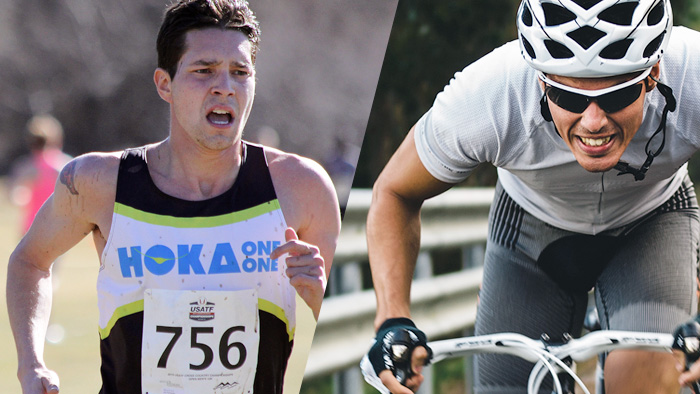You probably know how many meters you swam last week, how many miles you put in on your bike, and how much time you spent in each heart rate zone. You might even how deep your REM sleep was last night, if you’re really geeking out!
But there’s one factor you may be discounting with your training and health, and it’s the very foundation of who you are as an athlete: self-acceptance.
What is Self Acceptance?
Self-acceptance is part of your overall self-confidence. It involves how you see yourself, exactly as you are today. From Webster, it is “the act or state of understanding and recognizing one’s own abilities and limitations,” and it gives you an excellent starting point (or check-in point) for any endeavor.
While it can be difficult to admit that, say, your FTP is lower than you’d like, or that your mile pace is slower; facing reality will immediately eliminate the confusion and anxiety surrounding it. Knowing exactly where you are, right now, is the only way to form a foundation for your goals.
Of course, accepting where you’re at in your training journey doesn’t mean allowing yourself to be defeated before you get started. Athletes I’ve coached often say things like “I just suck at swimming/running/biking,” but if they can reframe the situation to see their current ability level as a starting point, they immediately begin to see things more constructively.
Simply put, the ability to believe in yourself as an athlete begins with understanding and accepting yourself, in the present. By denying your flaws, or pretending things are different than they are, you’ll never really know what you’re capable of!
What Does a Lack of Self Acceptance Look Like?
If you miss a workout or two, do you typically:
A) Beat yourself up or get angry
B) Take it in stride; you’ll be right back to training when you can
If you are in Category A, you may be applying a “tough inner critic” mentality to the rest of your life, which can be surprisingly detrimental to your self-confidence and ability to compete.
Not sure if that’s you? Here’s another one:
Do you feel like you’re “bad” if you:
Ate the dessert?
Didn’t finish the 2700 meters you planned?
Didn’t live up to your own expectations in some way?
Many triathletes and endurance athletes have this perfectionist mindset, and it can serve you well to a point, but eventually that internal “task-master” can kill your productivity. Humans have a need for autonomy; nobody likes being bossed around, even if it’s coming from your own mind. That’s why constant self-criticism leads us to rebel against behaviors we know are in our best interest.
The perfectionist mindset can create a struggle between doing what you know you “should” do (i.e. your workout or eating healthy); and “cheating” on your training. Rebelling against your inner task-master will feel like a relief at first, but will ultimately make you feel “bad.” Most of us will then double down on our perfectionism, which creates a vicious cycle.
So what do we do instead? What will create lasting motivation and satisfaction with minimal struggle?
How to Cultivate Self Acceptance
The foundation of any training journey is accepting your physical body, as well as your deep, true, inner self—including your mind and your personality. In my Burn Fat For Life program, I challenge participants to stand in front of the mirror, naked, and repeat this phrase for 60 seconds:
“Whatever my defects or imperfections, I accept myself unreservedly and completely.”
The statement might not feel true at first, but if you stick with it, you will begin to believe the words you’re saying. Do it every day and you may find that you’re a little less anxious and a little more compassionate towards yourself.
Consider what qualities in yourself you have struggled to accept. Maybe it’s a little extra weight, or your VO2 Max, or your fear of failure. Practice acknowledging those qualities as a starting point, and accept your current place in your training journey unreservedly and completely.
How Accepting Yourself Can Enhance Your Training
Once you accept yourself in the present, choosing the right foods, doing the right workouts, and living up to your expectations will come easy. When everything you do feels like a part of who you are at your core, your decisions become a reflection of yourself, rather a struggle for an external sense of perfection.
When (not if) something goes wrong, you’re still the same person, which allows obstacles and “bad days” to become just another part of the process. Even the worst cases like getting punched in the face on a swim start, or cramping up on a run, or getting a dreaded “DNF” are just temporary setbacks; they do not dictate who you are.
Self-acceptance must be at the foundation level of your fitness plan, whether that involves getting better at swimming, losing weight, or having successful, enjoyable training sessions and races. Once you accept where you are, then you can bring in all the splits, heart rates and whatever other metrics make your world more fulfilling.









